READY TO GET STARTED?
REQUEST A FREE ESTIMATE
Fill out the form below or call (888) 466-7849 for a free, no-obligation estimate.
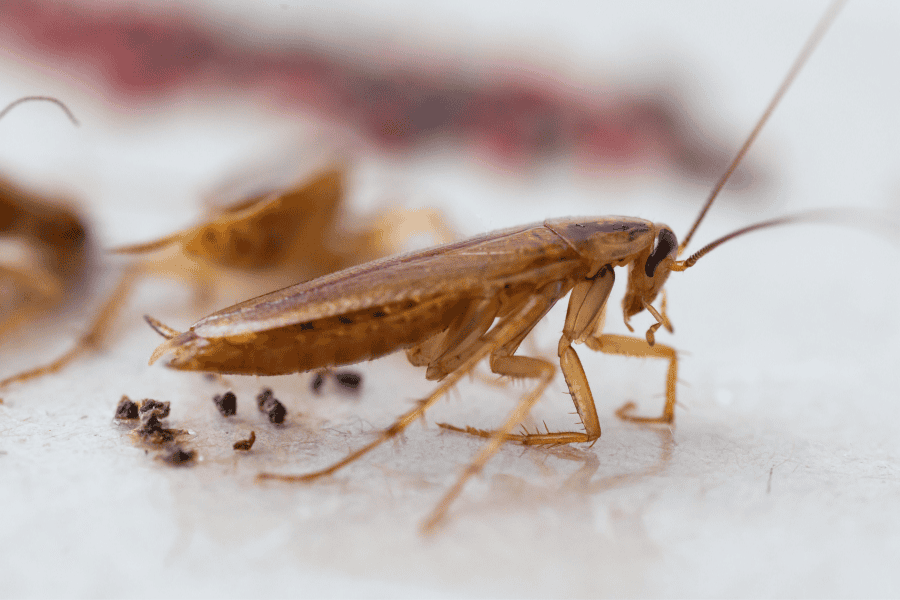
If you’ve spotted German cockroaches in your Georgia home, you’re not alone. These tiny, resilient pests are among the most common household invaders in the state. Unfortunately, they’re also one of the most difficult pests to eliminate. Understanding why the German cockroach is so hard to control starts with knowing how they get into your home, their rapid reproduction rates, and the challenges they present once they infest. This blog explores these factors and provides prevention tips to keep your home cockroach-free.
German cockroaches are expert hitchhikers. They often find their way into homes by latching onto items such as:
Once inside, German cockroaches quickly seek out food, water, and shelter. Kitchens and bathrooms are their favorite locations, as these areas provide an abundance of all three. Even a tiny spill, crumbs, or leaky pipe can be enough to sustain a thriving population.
The prolific reproduction of German cockroaches is a key reason they’re so hard to eliminate. Here’s why:
Once German cockroaches settle in, several factors contribute to their persistence:
Eliminating German cockroaches requires a multi-faceted approach. Here are some steps to consider:
Prevention is key to keeping German cockroaches out of your home. Here are some effective prevention tips:
While DIY methods can help manage small infestations, German cockroaches often require professional intervention for complete eradication. Here’s why:
German cockroaches are more than just a nuisance; they can contaminate food, trigger allergies, and spread harmful bacteria. Their ability to multiply quickly, adapt to their environment, and resist many pest control products makes them particularly challenging to eliminate. By understanding how they get into your home, why they reproduce so rapidly, and what makes them so persistent, you can take proactive steps to protect your home.
For homeowners in Georgia dealing with German cockroaches, professional help is often the most reliable solution. If you suspect an infestation, contact a trusted pest control company to reclaim your home and ensure it stays pest-free. Don’t wait until the problem escalates—request a free consultation today and take the first step toward a cockroach-free home.
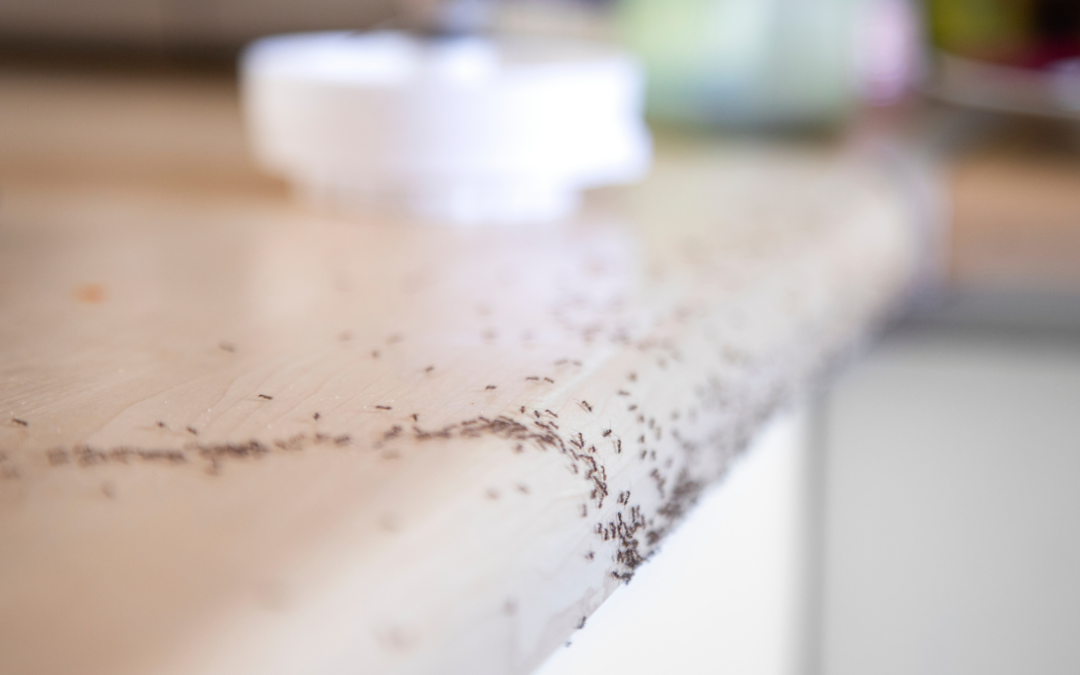
If you’ve been noticing small signs of unwelcome guests in your home, you may be wondering, “Do I need pest control services?” While some pest issues can seem minor, any pest problem left unchecked can lead to serious consequences. From property damage to health risks, pests can cause problems that are often hard to manage on your own. In this blog, we’ll walk you through the common signs that you might need residential pest control services and explain how hiring a pest control company can help protect your home and family.
A pest problem isn’t always easy to identify right away, as many pests can go unnoticed for months. Here are some clear signs that indicate you may need pest control services:
One of the most obvious indicators is actually seeing pests around your home. Common intruders like cockroaches, ants, mice, and even larger pests like raccoons or opossums may start appearing indoors. If you’re noticing pests frequently, especially during the day, it’s a sign of a larger infestation. Different types of pests often multiply quickly, so seeing even one can be a reason to contact a pest control company for inspection.
Some pests are more easily detected by sound than sight. If you hear scurrying, scratching, or even soft rustling sounds, especially in the attic, walls, or basement, it may indicate a rodent problem. Animals like rats, mice, and squirrels are typically active at night and are skilled at hiding. A pest management expert can identify and address these problems before they escalate.
Different types of pests can produce unpleasant odors. For example, a musty smell may indicate a cockroach infestation, while a urine-like odor could point to rodents. If you’re noticing unusual or bad smells, especially in enclosed areas like cabinets or pantries, pest control services can help assess the situation and provide appropriate pest control treatments.
Many pests can cause serious damage to your property. Termites, for example, are notorious for chewing through wood, which can weaken the structural integrity of your home. Rodents can gnaw on electrical wires, leading to potential fire hazards. If you see chewed wires, torn-up insulation, holes in walls, or damaged wood, it’s time to look up “pest control services near me” and consult a professional pest control company to assess and repair the damage.
Pest droppings are a clear sign of an infestation. The type of droppings can indicate what kind of pest you’re dealing with—small droppings may be from rodents, while dark, small pellets could be from cockroaches. If you find droppings in your kitchen, pantry, or anywhere else in your home, it’s essential to call a residential pest control company for a thorough inspection.
Termites and certain types of ants shed their wings as part of their lifecycle. Finding wings near windowsills, doorways, or other entry points can indicate that termites or ants are establishing a colony in or near your home. Pest management specialists can confirm the presence of these pests and recommend treatments to prevent further infestations.
Pests like cockroaches and dust mites can exacerbate allergies and asthma symptoms. Their droppings, body parts, and saliva are known allergens. If you or your family members are experiencing unexplained allergy symptoms or respiratory issues, there may be an unseen pest problem in your home that requires professional pest control treatments.
Once you recognize the signs of a pest problem, professional pest control services offer a range of benefits for long-term prevention and peace of mind.
Every home is unique, and so is every pest problem. A professional pest control company will assess the type and extent of the infestation and create a tailored treatment plan to address it. Instead of relying on general sprays or DIY traps, you’ll receive pest control treatments that target specific issues.
Store-bought pesticides and traps can be dangerous if misused and may not effectively target the pest problem. Pest control professionals are trained to use treatments safely and efficiently, ensuring your family’s and pets’ safety. They also know which treatments work best for each type of pest, making them far more effective than DIY methods.
One of the biggest advantages of hiring pest control services is prevention. Pest management experts not only eliminate existing infestations but also help you identify vulnerabilities in your home. From sealing entry points to recommending routine treatments, they can help prevent pests from returning.
Pest control services include follow-up visits and inspections, which allow professionals to monitor the situation and ensure the problem is fully resolved. They provide guidance on maintaining a pest-free home, such as storing food securely and clearing clutter that can attract pests.
When it comes to pest issues, a local pest control company can offer significant advantages. They understand the types of pests common in your area and the seasonal patterns of infestations. Local pest control services are also more responsive, making it easy to schedule inspections and treatments quickly.
When choosing a pest control company, look for one with experience, a good reputation, and licensed technicians. Ask about their treatment plans, preventive measures, and safety protocols. Reading reviews and checking for certifications can also help you find trustworthy residential pest control services.
If you’re noticing any of the signs listed above, it’s wise to consult with a pest control company sooner rather than later. Professional pest control services can save you time, reduce risks to your health, and prevent costly repairs from pest damage. By addressing a pest problem early and thoroughly, you can ensure a safe, comfortable, and pest-free environment for your family.
So, the next time you wonder, “Do I need pest control services?” consider the warning signs and contact a trusted pest control provider. It’s a step toward safeguarding your home and peace of mind.
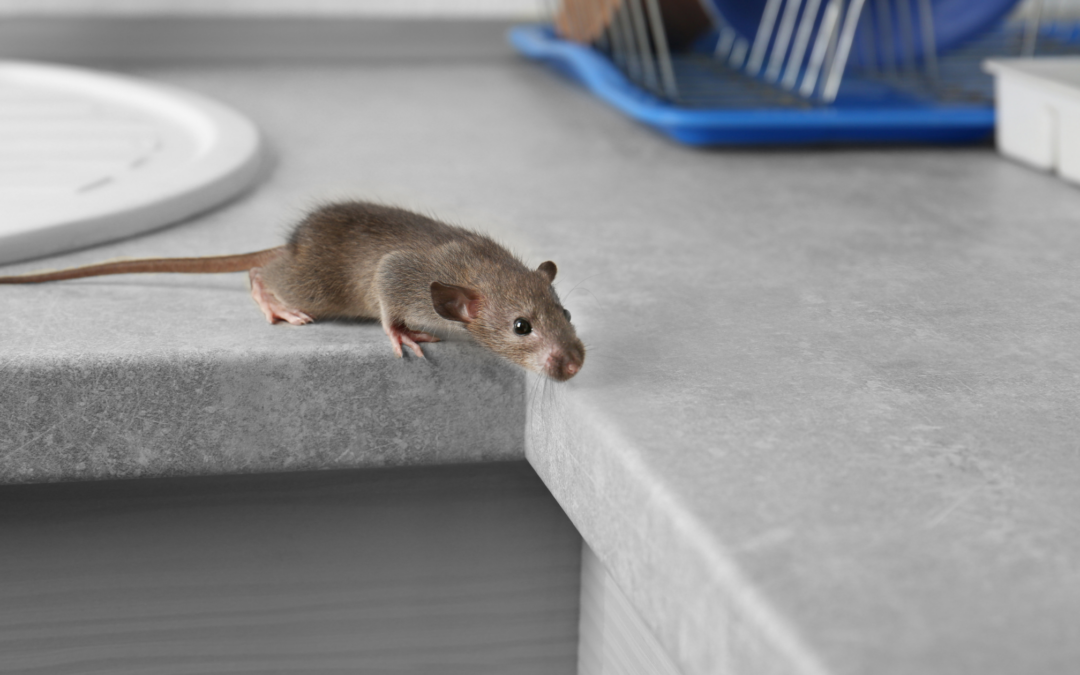
As winter sets in and temperatures drop, rodents begin looking for warmth, food, and shelter — often finding it inside homes. Many homeowners across Georgia experience an uptick in rodent issues during the colder months. This seasonal shift creates a heightened need for effective rodent control to protect your home from potential infestations. In this guide, we’ll cover why rodents are more likely to invade in winter, the types of rodents that commonly infest homes, and actionable tips to help you prevent future rodent issues.
Rodents, like all animals, seek a stable environment to survive through the colder months. When winter arrives, food and water sources become scarcer outdoors, pushing these creatures to find alternatives. Indoor spaces provide the warmth and shelter they need to survive. They often target areas like attics, basements, garages, and even kitchens where food and nesting materials may be available.
Common entry points for rodents include small cracks, holes, and gaps in walls, roofs, and foundations. Rats and mice can squeeze through surprisingly tiny openings, with mice needing only a quarter-inch gap to gain entry. Once inside, they multiply quickly, which is why a minor rodent issue can turn into a full-blown rodent infestation if not addressed promptly.
In Georgia, the most common types of rodents that invade homes in winter are:
Each type poses unique challenges and can cause extensive damage to a home’s structure, wiring, insulation, and more if left unchecked. Understanding the kinds of rodents prevalent in Georgia can help you recognize their presence sooner and take action.
Before tackling rodent control, it’s important to know the signs of a rodent infestation. Here are the key indicators:
If you notice any of these signs, it’s time to consider immediate rodent control measures. A local pest control company can help you evaluate the severity of the infestation and recommend effective solutions.
The best approach to rodent control in winter is a combination of prevention, exclusion, and routine maintenance. Here’s how you can effectively protect your home:
Since rodents can squeeze through even the smallest gaps, it’s essential to thoroughly inspect and seal any entry points.
Rodents are attracted to food, so keeping your home clean and food sources secured can deter them.
Rodents prefer areas with plenty of hiding spots and nesting materials.
The outside of your home can be just as attractive to rodents as the inside.
DIY methods can help, but they may not always solve the problem. Partnering with a reputable pest control company for rodent control is crucial for long-term prevention. Professionals can inspect your home, identify all potential entry points, and recommend solutions like rodent exclusion to secure vulnerable areas.
Additionally, a pest control professional can help you implement a monitoring system to detect any recurring issues, enabling quick responses to prevent future infestations. Look for a company that specializes in rodent control near me to ensure they understand the local rodent species and effective deterrent methods.
Winter months often mean an increased risk of a rodent infestation, but by being proactive, you can keep your home rodent-free. Sealing entry points, removing food sources, and maintaining a clutter-free environment can go a long way in preventing these pests from invading. However, if you notice signs of rodents in your home, don’t wait to seek professional help.
Working with an experienced pest control company can make all the difference in keeping your home safe, secure, and rodent-free. By taking these steps now, you can help prevent rodents from making your home their winter hideaway.

Moving to a new home is an exciting chapter, but it’s also a prime opportunity for pests—especially cockroaches—to sneak into your life and make themselves at home in your boxes, furniture, and other belongings. Roaches are resilient pests that thrive in small, dark hiding spots and can easily hitchhike from one location to another. Here’s a guide on how to prevent these unwanted guests from joining you on your move, along with general tips to keep roaches out of your new home.
To effectively prevent roaches from moving with you, it’s helpful to understand their habits and needs. Roaches are particularly drawn to food sources and areas that provide moisture and shelter.
Roaches are omnivores and can consume a wide range of organic materials. They are particularly drawn to leftover food, grease, crumbs, and even pet food. Cockroaches also eat paper, cardboard, and certain fabrics, making moving boxes and stored items potential attractions.
Some cockroach species, like the American cockroach, are capable of limited flying, though they prefer to crawl. Knowing whether roaches can fly helps you understand how they spread and why securing all your belongings is essential when moving.
Here are the best practices to follow before and during your move to prevent roaches from taking up residence in your belongings.
Roaches often hide in appliances, furniture, and dark, undisturbed places. Start by cleaning each item thoroughly. Wipe down surfaces, vacuum cracks and crevices, and check for any signs of cockroaches, such as egg casings, droppings, or shed skins. Focus on items stored in basements, kitchens, and closets, as these areas are common hiding spots for roaches.
When packing, use new, sturdy boxes if possible, as reused boxes can harbor roach eggs and larvae. Place items in plastic bags before putting them in boxes to add an extra layer of protection. Once packed, seal boxes securely with packing tape to keep pests out.
If you must transport food items, make sure they’re in airtight containers to avoid attracting roaches. However, it’s often best to avoid moving food altogether, as even small crumbs or residue can attract pests.
While it can be tempting to pick up free boxes from stores or friends, reused boxes are often stored in garages or basements where roaches are common. Opt for new boxes whenever possible, and recycle any boxes you don’t need.
Appliances like microwaves, toasters, and refrigerators can harbor food particles and moisture that attract roaches. Clean them thoroughly before packing, and check all crevices where roaches might hide. Consider wrapping appliances in plastic bags to contain any pests that may escape detection.
Once you arrive at your new home, there are key steps you can take to prevent any hidden pests from settling in.
Before bringing boxes directly into your new home, inspect them for any roaches or other pests. Unpack items outside if possible, and wipe down each item before placing it inside. Dispose of packing materials immediately to prevent them from using them as hiding spots.
Even if your new home appears spotless, roaches could still be hiding in cracks, crevices, and dark corners. Vacuum carpets, mop hard floors, and wipe down all surfaces. Pay special attention to kitchens and bathrooms, as these areas often provide food and moisture sources that attract cockroaches.
Roaches can enter through tiny openings in walls, windows, and baseboards. Use caulk to seal any gaps around plumbing, electrical outlets, windows, and doors. Sealing these entry points reduces the likelihood of roaches finding a way in.
Keeping roaches out of your new home requires ongoing vigilance and cleanliness. Here are some essential cockroach control tips to follow.
Roaches are constantly on the hunt for food and water. Clean up crumbs and spills immediately, and keep food in airtight containers. Pet food should be stored securely and not left out overnight. Fix any leaky faucets or pipes, as roaches are attracted to moisture and can survive for weeks on water alone.
Roaches thrive in cluttered environments where they can hide and breed. Keep storage areas tidy, minimize paper clutter, and avoid stacking cardboard boxes or newspapers. Regularly clean out cabinets and storage spaces to deter roaches from making these areas their homes.
Trash bins are a major attraction for roaches, especially if they contain food waste. Use trash cans with tight-fitting lids and take out the garbage frequently. Regularly clean the inside of the trash bin to remove any spills or residue.
Essential oils such as peppermint and tea tree oil are natural roach deterrents. You can dilute these oils with water and spray them in areas where roaches are likely to enter, such as under sinks, around trash cans, and in cupboards. While not a guaranteed solution, natural deterrents can help reduce cockroach activity.
Enlisting the help of a professional cockroach exterminator can be one of the most effective ways to keep roaches out. A pest control company can perform regular inspections, treat your home with preventive measures, and offer advice on further roach prevention steps. Professional treatments can be especially valuable in high-risk areas such as kitchens and bathrooms, where roaches are often drawn to food and water sources.
If you notice signs of cockroach infestations in your new home despite taking preventive measures, it may be time to call in a pest control professional. Roaches reproduce rapidly, and even a single sighting can indicate a larger problem. Look out for these signs of infestation:
A cockroach exterminator can assess the extent of the infestation and provide targeted treatment options to eliminate roaches and prevent them from returning.
Moving to a new home is a chance to start fresh, and taking steps to prevent roaches from tagging along is an important part of that process. By inspecting and cleaning items before packing, using quality packing materials, and practicing good hygiene in your new space, you can greatly reduce the risk of cockroach infestations. And for ongoing protection, consider enlisting the help of a pest control company that specializes in cockroach control and prevention. With these pro tips, you can enjoy a roach-free home and a peaceful start to your new journey.

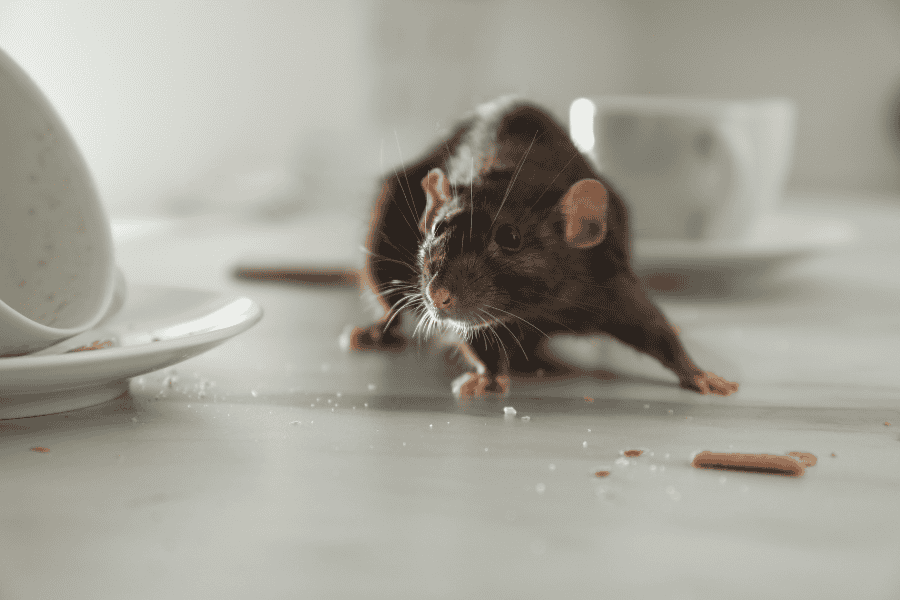
Winter can be a cozy time for many Alabama homeowners, but it’s also the perfect time for rodents to start seeking warmth and shelter – often inside our homes! To keep your property rodent-free during the colder months, placing a few DIY preventative measures can make all the difference. Let’s dive into some practical and easy-to-implement tips to help you protect your home from unwanted wildlife visitors year-round.
Rodents can squeeze through surprisingly small openings. Inspect your home for gaps around doors, windows, and your home’s foundation. Use weatherstripping or caulk to seal up any cracks or holes. Don’t forget to check for openings around pipes, vents, and utility lines—these are common entry points that rodents love.
A clean home is less attractive to rodents. Be sure to store food properly by keeping food in airtight containers, especially in the pantry. Likewise, look to clean up crumbs by regularly sweeping, mopping, and vacuuming to eliminate food scraps that could attract rodents. Don’t forget to take out the trash on a regular basis and dispose of it in trash bins that are tightly sealed.
Your yard is the first line of defense against rodents, so it’s important to keep it well-maintained. Trim back your vegetation throughout your property as rodents love to hide in overgrown shrubs and tall grass. Keeping this trimmed will help to reduce their hiding spots. Clear away piles of leaves, wood, and other debris that could serve as shelter for rodents. Look to keep any firewood or lumber at least 20 feet away from your home and elevate it off the ground.
Sometimes, despite your best efforts, rodents find a way in. If you’re dealing with an infestation or want to ensure your home is protected, it might be time to call a pest control company near you. These professionals can assess your home, provide rodent control treatments, and offer advice specific to Alabama’s climate and rodent population.
Keeping your Auburn home rodent-free during the winter months doesn’t have to be difficult. With a little effort, you’ll enjoy a cozy, rodent-free winter season.

Pest control is an essential part of maintaining a clean and safe home, especially when faced with recurring pest problems. When unwanted pests invade, the first instinct for many homeowners is to search for quick and effective solutions. For some, this means tackling the issue themselves with do-it-yourself (DIY) pest control methods, while others prefer to call in professional pest control services.
Both approaches come with their own advantages and drawbacks, and understanding them can help you make an informed decision about which method works best for your specific pest problem. In this article, we will explore the pros and cons of DIY pest control and professional pest control, highlighting factors like cost, effectiveness, safety, and long-term results.
One of the biggest advantages of DIY pest control is the potential cost savings. Professional pest control services can come with significant fees, which can add up over time. Many homeowners prefer to buy pest control products and handle the issue themselves, believing it will save money in the long run.
DIY pest control products, such as sprays, traps, and bait systems, are often available at affordable prices at local hardware or home improvement stores. Additionally, online retailers provide a wide variety of pest control solutions, making it easy to find what you need at a reasonable cost.
When you spot pests in your home, immediate action is often necessary to prevent further damage or infestation. DIY options allow homeowners to take action right away without waiting for a professional service to arrive.
With DIY pest control solutions readily available in stores or online, you can quickly eliminate pests like ants, spiders, or cockroaches as soon as you notice them.
Handling pest control yourself offers the convenience of addressing the problem on your own schedule. You can apply treatments at any time, without needing to coordinate appointments with a pest control company.
For small, isolated pest problems, DIY methods are usually sufficient and allow homeowners to manage minor infestations with ease.
For homeowners who are environmentally conscious or prefer natural alternatives, DIY pest control provides greater control over the types of products used. You can choose non-toxic or organic pest control products if you’re concerned about the chemicals found in conventional pesticides.
This flexibility ensures that you are using methods that align with your personal preferences and household safety standards.
One major drawback of DIY pest control is that most homeowners lack the experience and expertise of professional pest control technicians. Identifying the exact pest and knowing the most effective way to eliminate them requires specialized knowledge. For example, a termite problem is far more complex than an ant infestation, and using the wrong products or methods can make the situation worse.
Without proper training, DIY solutions may only provide temporary relief from a pest problem rather than a long-term solution. In more serious cases, pests may return or even become resistant to certain treatments.
Many over-the-counter pest control products contain chemicals that can be harmful to humans, pets, and the environment if not used correctly. Misuse or overapplication of these products can lead to health risks, including respiratory issues or skin irritations.
Professional pest control services are well-versed in handling hazardous substances and take proper precautions to ensure the safety of your household. DIY methods, on the other hand, may expose you and your family to unnecessary risks if instructions aren’t followed precisely.
While DIY pest control solutions can be effective for minor issues, they often fall short when dealing with more severe infestations. For example, a large rodent problem or a bed bug infestation requires more specialized knowledge, tools, and products that most homeowners don’t have access to.
DIY methods may not address the root cause of the problem or prevent future infestations. Without a thorough understanding of the pests’ behavior, DIY treatments might eliminate visible pests without targeting their nests or breeding sites, leading to recurring infestations.
Pest control is not always a one-time fix. Many DIY treatments require frequent applications and monitoring to ensure the pests are completely eliminated. For busy homeowners, this can become time-consuming and inconvenient.
In contrast, professional pest control companies offer long-term pest control solutions that require less involvement from the homeowner.
When deciding between DIY pest control and professional pest control, it’s essential to consider the severity of your pest problem, your budget, and your comfort level with handling chemicals and treatments.
DIY pest control can be a cost-effective and convenient solution for minor pest issues, but it often lacks the expertise and long-term effectiveness of professional services. On the other hand, professional pest control offers more comprehensive pest control solutions and peace of mind but comes at a higher cost.
If you’re dealing with a recurring or severe pest infestation, it’s worth considering professional pest control services to eliminate pests and prevent future problems. For those looking for quick fixes or minor pest issues, DIY pest control may be a suitable option.
When searching for solutions, whether it’s DIY pest control near me or a trusted pest control company, understanding the pros and cons of each method will help you make the best choice for your home and family.
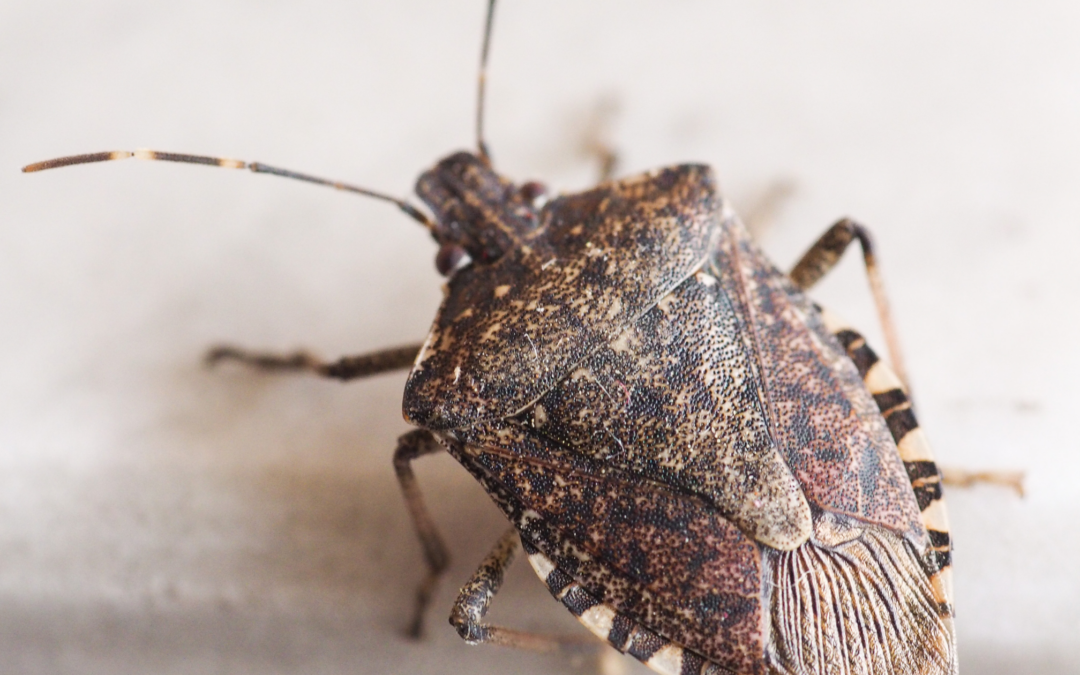
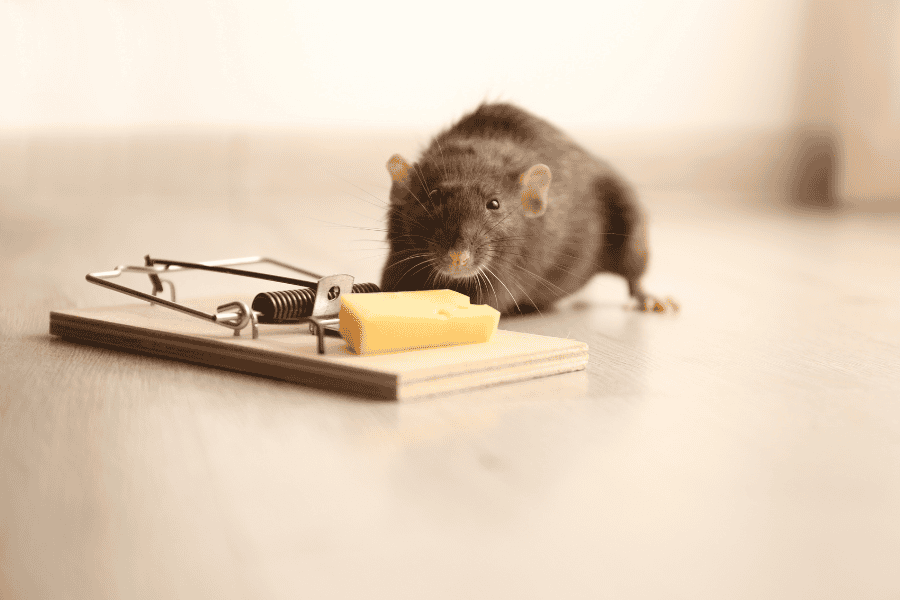
Dealing with pests in Auburn can be a challenging task for any homeowner. Whether it’s the persistent march of ants across your kitchen floor or the strange rustling of rodents in the attic, pests are not only a nuisance but can also pose health risks and cause property damage. When facing these unwelcome guests, homeowners often grapple with the decision of whether to tackle the problem with DIY pest control or call a professional pest control company. Here, we weigh the pros and cons of both approaches to help you make an informed decision.
Both DIY and professional pest control have their place in managing pest issues and by understanding the nature of your problem and weighing the pros and cons, you can choose the best approach for your home. Whether you opt to tackle it yourself or call in the pros, the goal is the same: a pest-free home that keeps you and your family safe and comfortable. If you’ve exhausted your DIY pest control methods and are still noticing more pests on your property than you’re comfortable with, call a pest control company near you for a free inspection and recommendations on the best treatment plan.